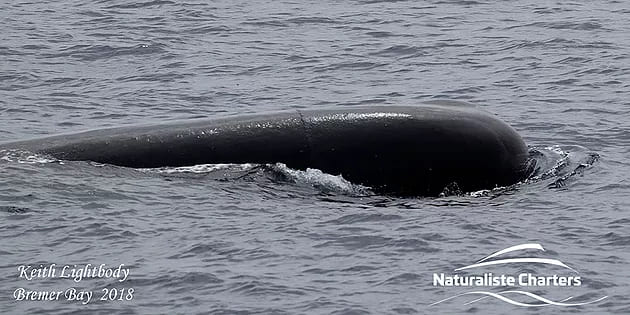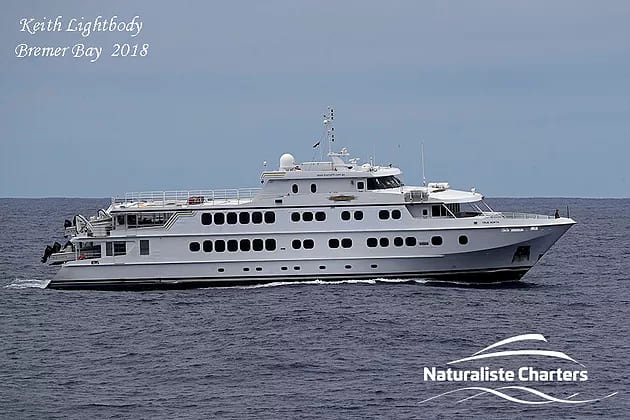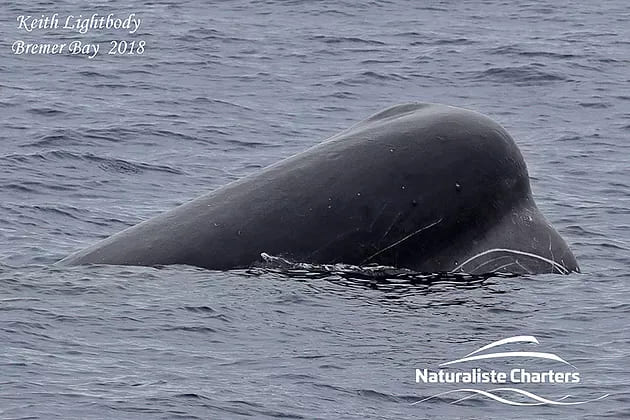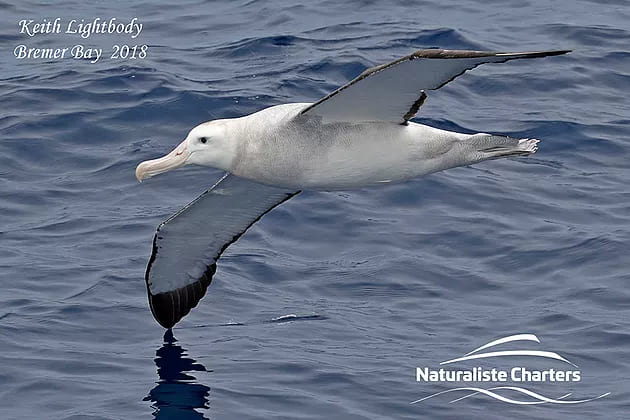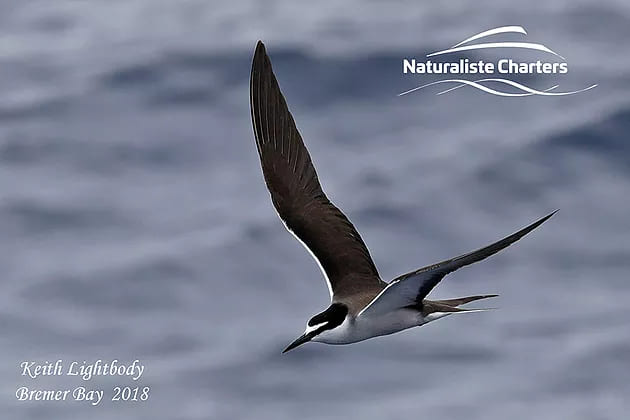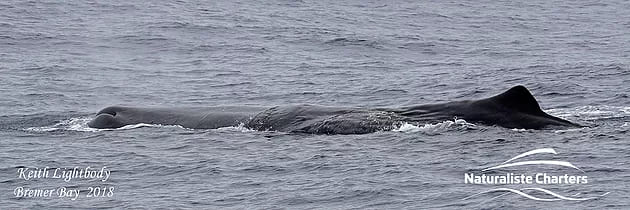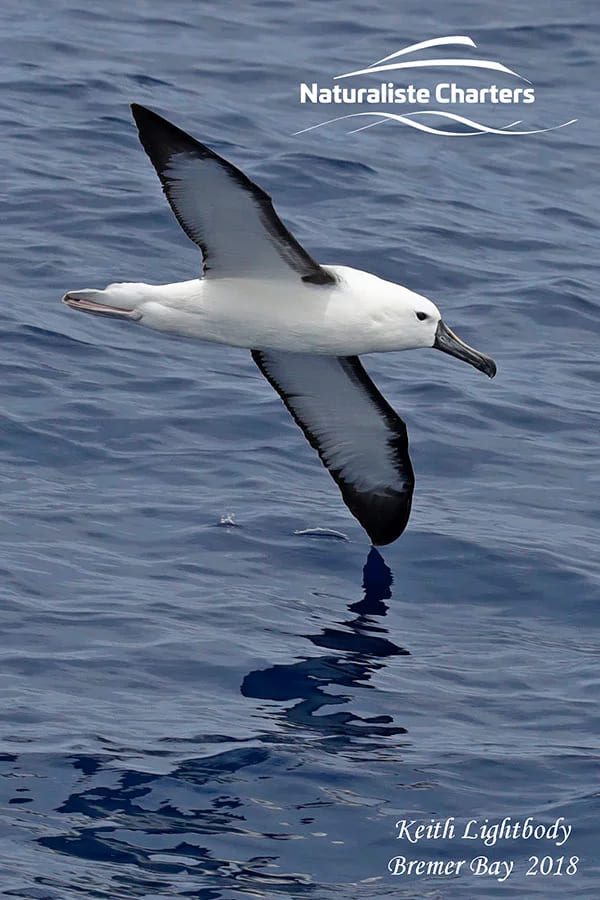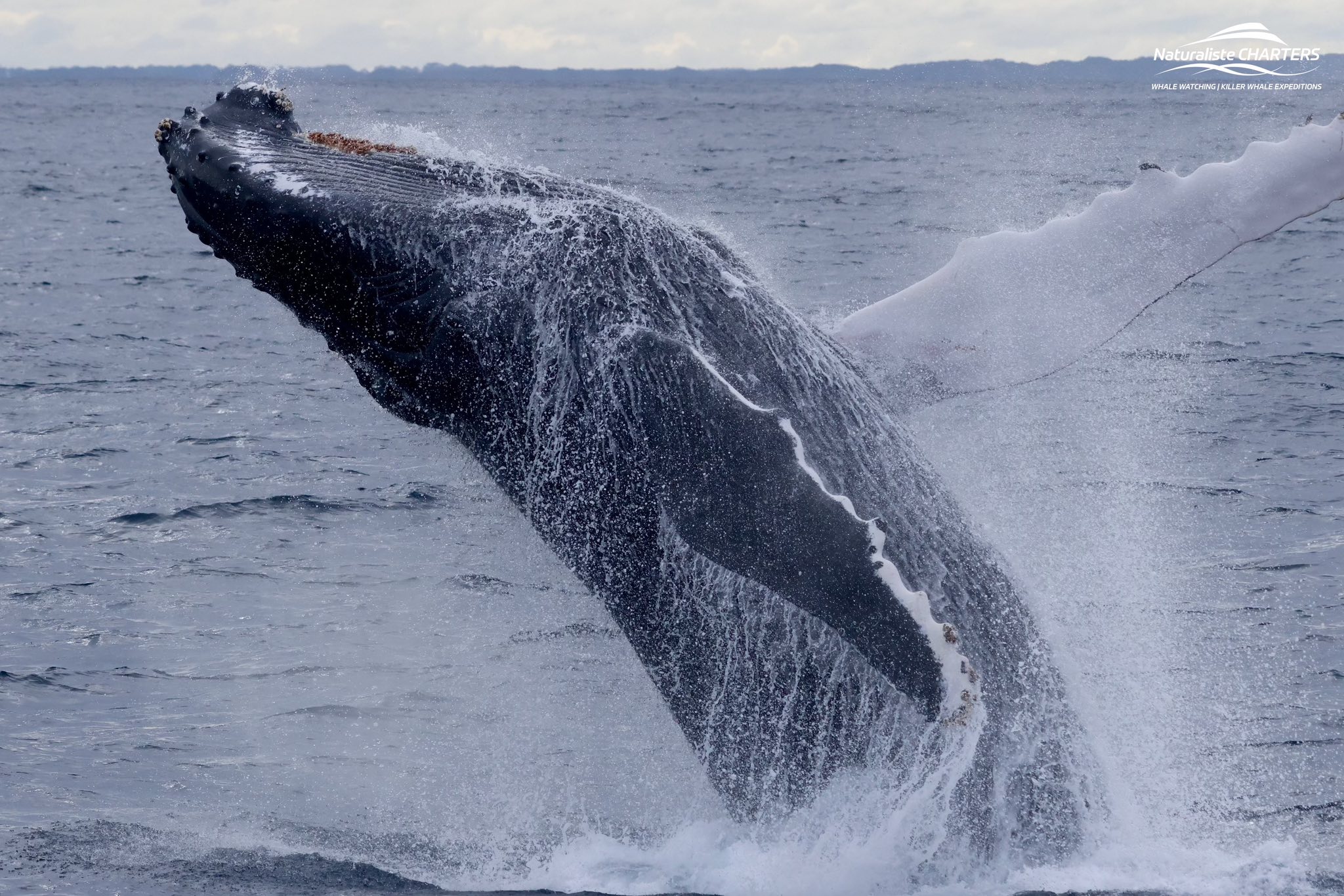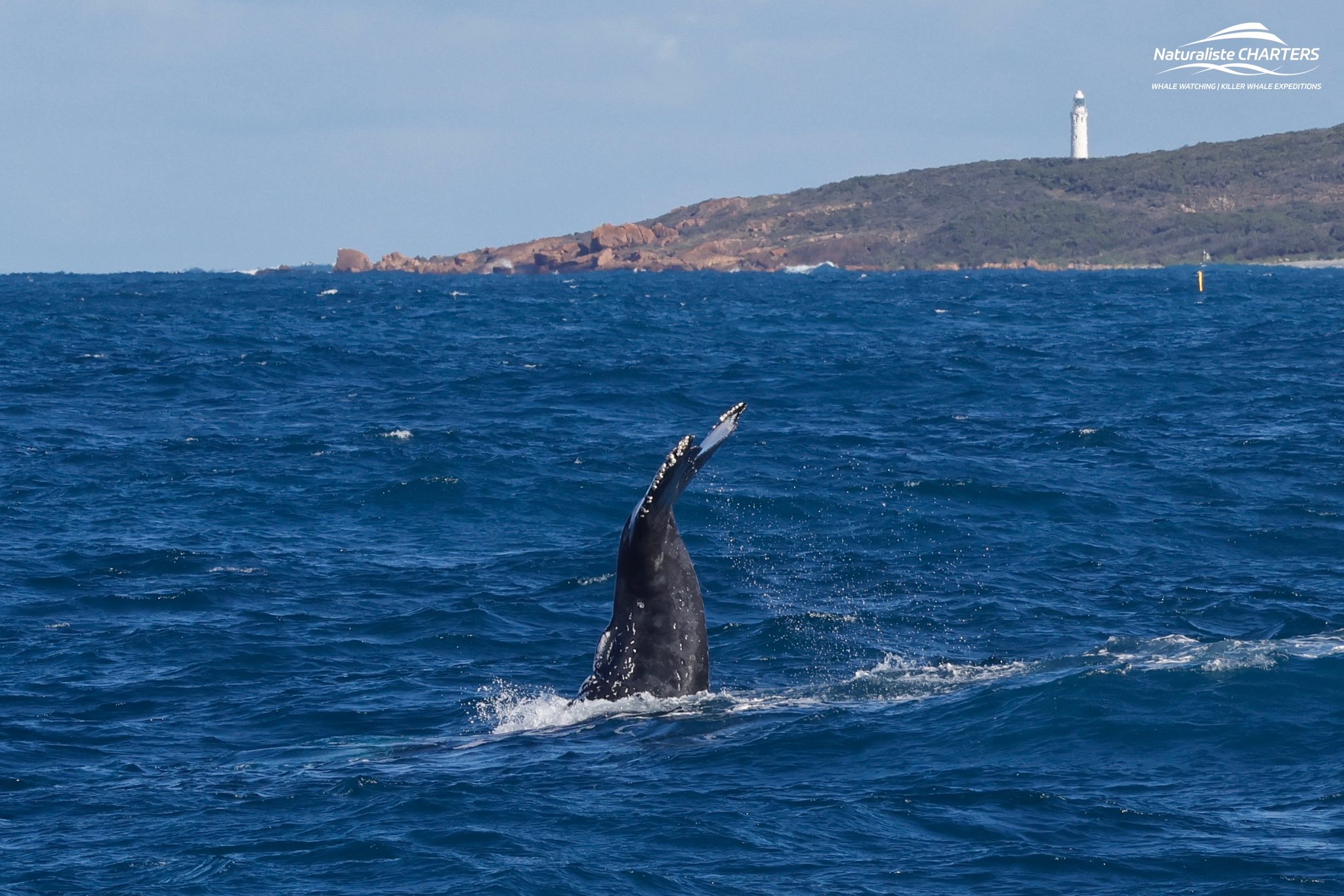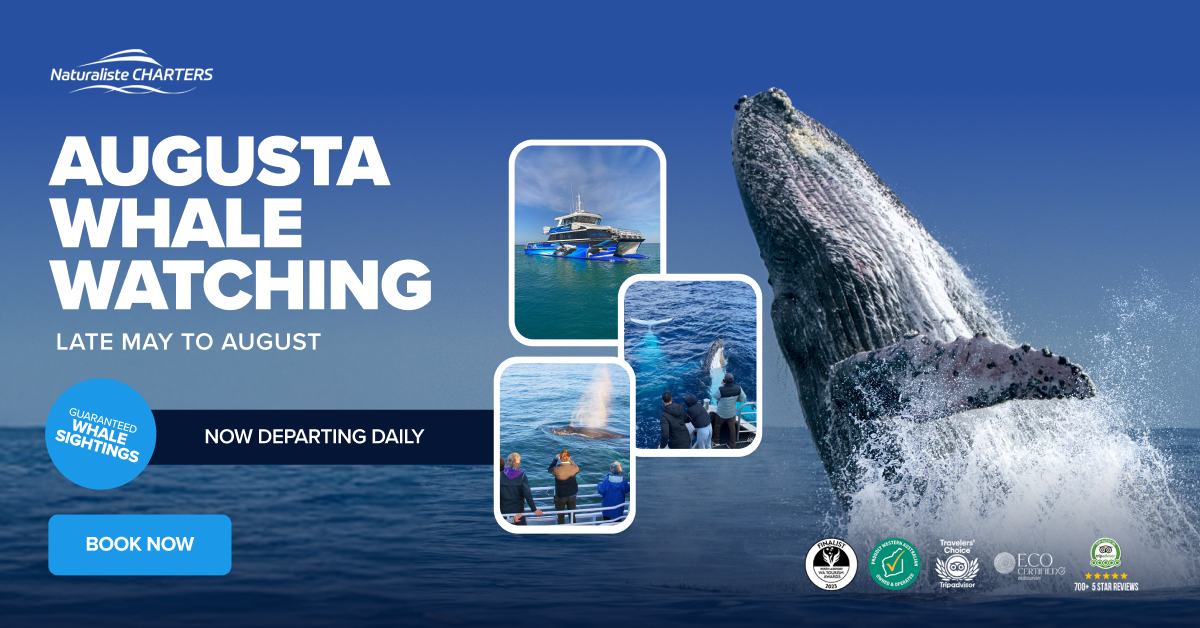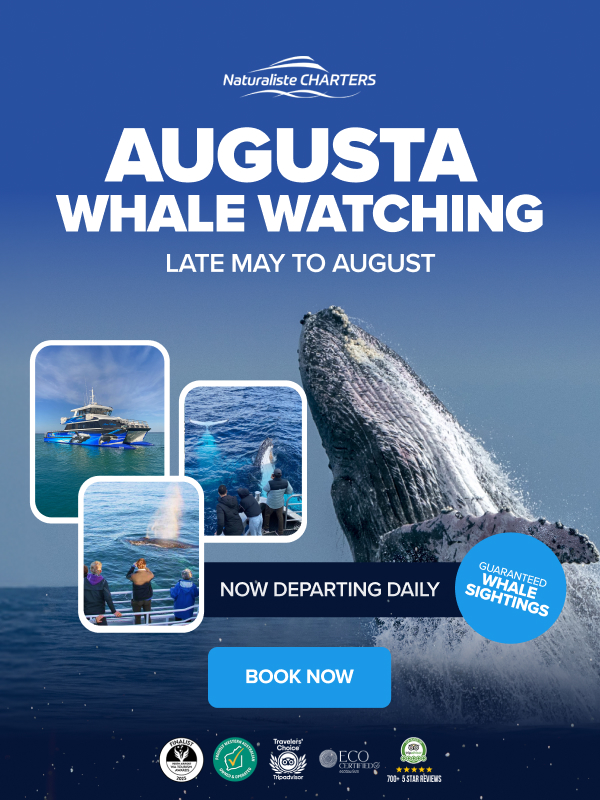Quiet seas and little wind accompanied our commute to the Bremer Canyon today. All eyes to the empty skies and seas, we commenced the search. Where was our helpful contingent of seabirds? Where were the killer whales? Any whales? We investigated several small swirls of birds as they skimmed the sea surface, sighting Storm Petrels, Shearwaters, Indian Yellow Nosed Albatross and a magnificent Waterdering Albatross, it’s 2m wing span the largest of any bird. Their interest today though was in various pelagic fish species that swam in silvery shoals just below the surface.
Some days we come across marine life as soon as we arrive, other days it takes us longer. Today was looking like it would take a while. Our delicious local gourmet catering provided by the Wellstead Museum Cafe was a welcome distraction for our expeditioners to enjoy while we carefully searched the featureless swathe of sea.
Our persitence was eventually rewarded, as the distinctive, angled blow shot skyward, visible a kilometer ahead. We upped our speed to close the gap before slowing for our final approach, breath held that the giant would remain on the surface. Our luck held. A sperm whale, as big as a bus continued to log peacefully in the grey swell. Ahead, we could see another, and still another off our port sid
The majority of a sperm whale’s 50 ton bulk sits below the water line, making an accurate assessment of length difficult. We were able to use a shearwater in one of our photos that conveniently has a 1m wing span, to estimate the size of this individual at around 16m. The three animals continued to breathe with powerful blows to reoxygenate blood and tissues depleted after a dive that had likely lasted an hour and reached depths of up to 1000m, where water pressure is crushing and sunlight never seeps.
The Sperm Whale’s name comes from ‘spermaceti’, liquid oil in the head that hardens when cooled. The oil’s full function is still debated but seems to assist with both with buoyancy and their superbly sophisticated echolocation system.
For all their apparent ferocity in folklore, they feed on surprisingly small squid, hoovering up a few hundred a night, mostly about 30cm long. Occasionally they tackle larger fish, bottom dwelling sharks and rays and evern Giant Squid. Chitinous squid beaks found undigested in the stomachs of dead Sperm Whales have been used to estimate the size of their tentacled prey.
The last Sperm Whale was taken only 200km down the road by the Albany Whaling Station in 1978. The old whalers themselves began what we continue. John Bell recalled “… the last day of whaling I only saw one whale. A huge bull sperm whale. We hadn’t quite taken our quota for the year, but this monster was over 45 feet long. So we left him in peace.”
It’s possible this sperm whale was alive during whaling times, and it’s a good feeling to know that encounters with these giants now aim to observe, appreciate and learn.
Until Tomorrow,
The Bremer Canyon Crew

